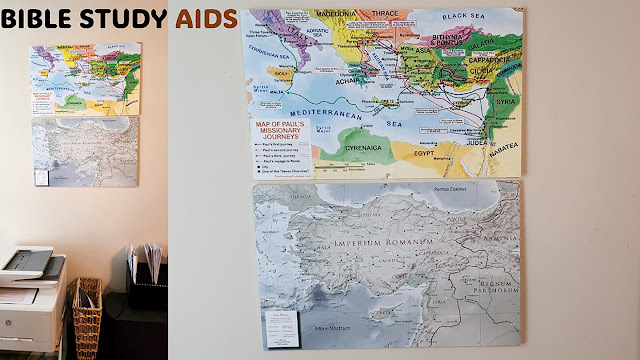BIBLE STUDY IS SERIOUS BUSINESS
For me, Bible study is much more than reading daily devotionals or daily guides. My approach to Scripture is not just so I check a religious box to appease God or to adhere to a daily religious routine as proof of religious commitment. I’m not the “a verse a day chase the devil away” kind of Christian. Sunday-Sunday regimen is not my preferred way of studying Scripture.
Knowing how to study the Bible is something I consider to be serious business. It’s a pretty tasking and tedious undertaking to want to understand Scripture. When I study the Bible, I go all out and all in, pulling out all the stops. To aid my Bible study, I take advantage of all available tools I can lay my hands on.
We are in the twenty-first century. You’d be shocked by the mountain of resources out there at your disposal. There are Bible softwares of all kinds, Bible concordances in diverse formats, and Bible dictionaries loaded with assorted linguistic translations, imageries, and graphics. Many of these are available free of charge. And if you are really committed, you can also obtain more comprehensive versions of all these materials for a nominal fee.
You see, one of the mistakes many of us make when we study the Bible is to come at it with our twenty-first century mindset. Very often, we fail to appreciate that the books of the Bible were written by people to people who lived thousands of years ago in totally different cultural settings and linguistic contexts.
Very few of us take the time to ask the rather important questions, such as:
(1) What message was the author trying to communicate when he wrote this particular Bible passage?
(2) What did the passage mean to the people to whom it was written?
(3) What was the specific context surrounding the passage in question?
Because we don’t ask these questions, what most people end up doing is give the Bible a cursory or brief scanning as a fulfilment of all righteousness. As a result, they draw wrong conclusions and develop erroneous understanding of the Bible.
Don’t just read the Bible, study it. Study prayerfully and reverentially. Ask the Holy Spirit for understanding. He is the Spirit of truth that was promised to guide us into all truth. The Holy Spirit inspired men to write the Bible, solicit His assistance to figure out what you are studying.
Study the Bible contextually. Do not rip Bible verses out of context or form doctrinal opinion from an isolated Bible text. No Bible verse can be understood out of its proper context. You don’t read chapter 8 of Things Fall Apart and simply expect to know everything about the book. In order to understand a Bible verse, you must read the surrounding verses and chapters. It’s the only way you are ever going to grasp the theme, purpose, and specific issues the text is addressing.
It's hubris to think you can, all on your own, understand the Bible without the help of the gifted men endowed with the spiritual gift of teaching the Word of God. There are Bible scholars out there who are great expositors of Scripture. Seek their help by reading their writings and listening to their teachings. And I’m referring to gifted teachers of the Word who actually speak and understand the Bible languages, and not the fly by night charlatans that populate the pulpits. Many of these gifted Bible expositors are experts in the cultural and linguistic nuances of ancient Jewish and Greek people.
Develop a study plan of your own. If we are reading the Bible regularly, it’s best not to open the Bible to a random place every day. Nor is it always good to go wherever our whims take us. This is because randomness disallows us from reading the Bible in any coherent order – and reading the Bible in some kind of order helps us understand it better (Source: Ligonier Ministry).
Lastly, don’t read in isolation. If, for instance, you are studying any of the Pauline epistles or the Book of Acts and Paul’s missionary journeys, get a map to trace his route. You’d be shocked how much your understanding is enlightened by having a geographical frame of reference while studying these epistles.
And as you can see from the photo accompanying this commentary, I practice what I preach. The photo shows two maps; one for Paul’s missionary journeys, and the other is a map of Asia Minor (i.e., modern-day Turkey) during the first three centuries of Christianity. You’d find them hanging on the wall of my study at home.




Comments
Post a Comment